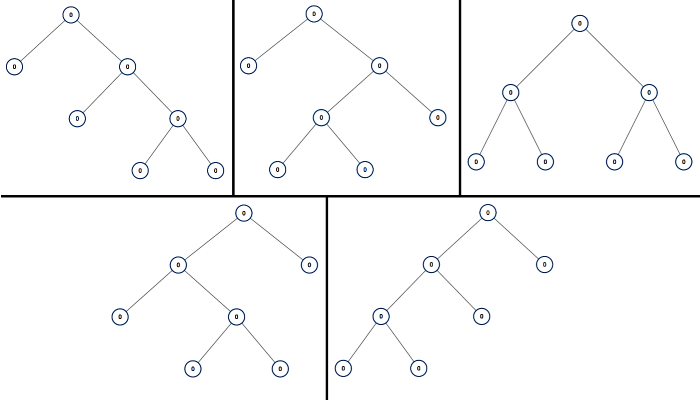Description
Given an integer n, return a list of all possible full binary trees with n nodes. Each node of each tree in the answer must have Node.val == 0.
Each element of the answer is the root node of one possible tree. You may return the final list of trees in any order.
A full binary tree is a binary tree where each node has exactly 0 or 2 children.
Example 1:

Input: n = 7 Output: [[0,0,0,null,null,0,0,null,null,0,0],[0,0,0,null,null,0,0,0,0],[0,0,0,0,0,0,0],[0,0,0,0,0,null,null,null,null,0,0],[0,0,0,0,0,null,null,0,0]]
Example 2:
Input: n = 3 Output: [[0,0,0]]
Constraints:
1 <= n <= 20
Solution
Python3
# Definition for a binary tree node.
# class TreeNode:
# def __init__(self, val=0, left=None, right=None):
# self.val = val
# self.left = left
# self.right = right
class Solution:
def allPossibleFBT(self, n: int) -> List[Optional[TreeNode]]:
res = []
@cache
def go(n):
if n == 1: return [TreeNode()]
res = []
for i in range(1, n, 2):
for left in go(i):
for right in go(n - i - 1):
res.append(TreeNode(0, left, right))
return res
return go(n)